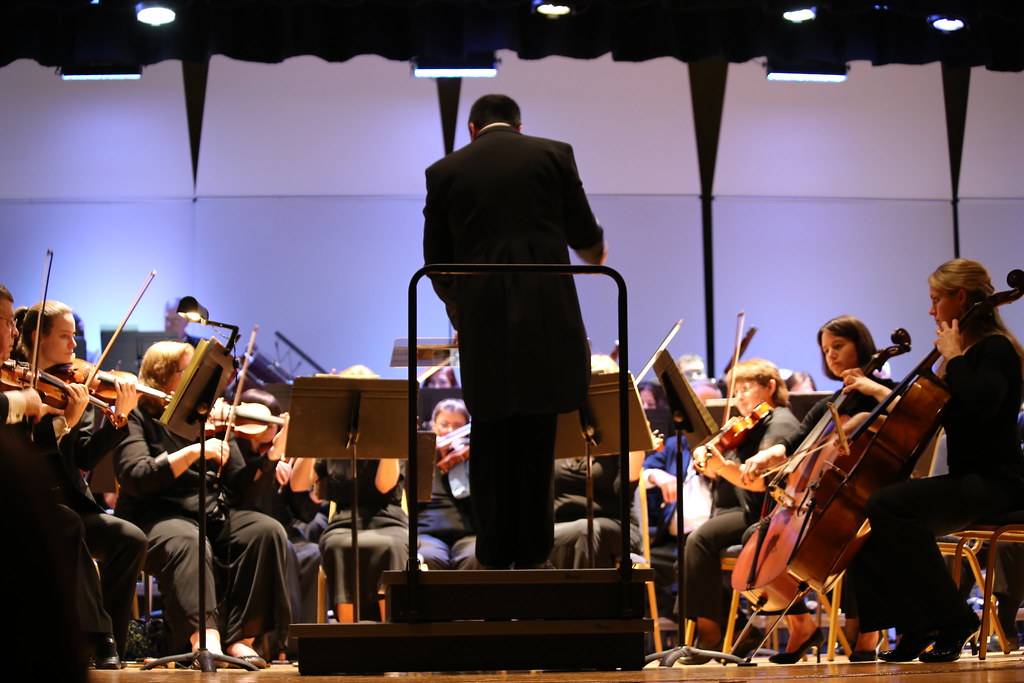
The world of television music mourns the loss of Alf Clausen, the esteemed composer whose unparalleled ability to blend comedic timing with dramatic underscore shaped the sonic landscape of “The Simpsons” for nearly three decades. Clausen, an Emmy-winning maestro whose work transcended the often-underestimated realm of television scoring, passed away on May 29, 2025, at the age of 84, at his home in Los Angeles, following a decade-long battle with Parkinson’s disease, later reported as progressive supranuclear palsy. His departure marks the end of an era for countless fans who grew up with his distinct musical contributions.
While Danny Elfman’s iconic theme tune for “The Simpsons” may be instantly recognizable, it was Alf Clausen who, from 1990 until 2017, provided the intricate, often overlooked, yet fundamentally crucial musical tapestry for almost every episode. He crafted an astounding nearly 600 scores, leading a 35-piece orchestra to bring to life the diverse emotions and riotous antics of Springfield’s beloved inhabitants. His unique philosophy, as articulated by creator Matt Groening, was to score the animated series not as a cartoon, but as a drama where the characters happened to be drawn, focusing on the characters’ emotions rather than mere action.
Clausen’s career was a testament to his versatility, technical precision, and unwavering dedication, earning him an impressive 30 Emmy Award nominations, with 21 specifically for his work on “The Simpsons,” and two wins. Before his monumental tenure in Springfield, his journey was marked by a relentless pursuit of musical excellence, spanning from his formative years in North Dakota to significant roles in television’s most memorable shows. This look back explores the early life, education, and foundational work that defined a composer who, in Groening’s words, was “one of the unacknowledged treasures of the show.”

1. **Early Life and Musical Awakening**Alf Faye Heiberg Clausen was born on March 28, 1941, in Minneapolis, Minnesota, and subsequently spent his formative years growing up in Jamestown, North Dakota. From a very young age, Clausen displayed a keen and natural interest in music, a passion that would ultimately define his illustrious career. This early inclination saw him drawn to various instruments, illustrating a diverse musical curiosity that would become a hallmark of his compositional style.
He began playing the French horn in the seventh grade, an instrument he would later become the first player of to attend Berklee College of Music. Alongside the French horn, he also dedicated himself to learning the piano, further expanding his musical repertoire. His engagement with music extended to vocal performance, as he actively sang in his high school choir, before shifting his focus when the choir schedule conflicted with his band commitments, leading him to take up the bass guitar. Clausen counted the legendary composer Henry Mancini as one of his heroes, finding profound inspiration in Mancini’s seminal work, “Sounds and Scores,” a book that significantly influenced his developing musical philosophy.

2. **Education and Berklee College**Clausen’s academic path initially deviated from his musical inclinations, as he enrolled at North Dakota State University to study mechanical engineering. However, the pull of music proved too strong to resist. Inspired by his pianist cousin, he made a pivotal decision to switch his major to music theory, fully committing himself to his true calling. During his time at North Dakota State, he proactively sought to deepen his expertise, undertaking a correspondence course from Boston’s renowned Berklee College of Music, focusing on jazz and big band writing.
His pursuit of higher education then led him to the University of Wisconsin–Madison, where he intended to complete a master’s degree. This endeavor, however, was cut short as Clausen found himself at odds with the institution’s atmosphere, particularly what he perceived as an “anti-jazz” attitude, which was inimical to his musical spirit. He subsequently returned to Berklee, graduating in 1966 with a diploma in arranging and composition. Notably, he was the first French horn player ever to attend the college, actively participating in numerous ensembles and contributing to some of the “Jazz in the Classroom” albums, further solidifying his jazz credentials. Following his graduation and the completion of his master’s degree at Berklee, Clausen briefly returned to the institution to teach for a year, imparting his knowledge to the next generation of musicians.

3. **Early Career in Los Angeles**In 1967, Alf Clausen made the consequential move to Los Angeles, California, driven by the ambitious goal of becoming a full-time composer in the television industry. The initial years in the bustling entertainment capital were a period of tireless dedication and diverse engagements, as he worked to establish his foothold. For nine years, Clausen immersed himself in various musical roles, undertaking arrangement work for singers, engaging in ghostwriting, and composing commercial jingles, all of which honed his craft and expanded his practical experience.
Beyond these compositional pursuits, he also took on roles as a teacher, a music copyist, and a bassist, demonstrating his versatility and commitment to the musical profession. One notable credit from this period includes his work as a copyist on the instantly recognizable “Come On Get Happy,” the iconic theme song for “The Partridge Family,” illustrating his early involvement in significant television productions. These foundational years in Los Angeles were instrumental in shaping his diverse skillset, preparing him for the more prominent roles that would soon define his career.
Read more about: The Uncut Tapes: What 14 A-Listers Were Really Like Before They Hit It Big

4. **Becoming Music Director: Donny & Marie, Mary Tyler Moore Hour**Clausen’s persistent efforts in Los Angeles began to yield significant opportunities, leading him to more prominent roles in the television industry. Between 1976 and 1979, he served as a score writer, and eventually the music director and conductor for the popular “Donny & Marie” variety show. His initial engagement with the program was rather impromptu; he was requested to write an emergency chart for the very next day. This impressive demonstration of his talent led to his immediate hiring as a score writer, and he subsequently continued to write and conduct for the show, eventually taking over as music director from Tommy Oliver.
When the production of “Donny & Marie” relocated to Utah, Clausen maintained his commitment, flying weekly from Los Angeles to oversee and record the score. His success in this demanding role paved the way for similar responsibilities, as he held the same position on “The Mary Tyler Moore Hour” in 1979. His burgeoning reputation for excellence in music direction was formally recognized in 1981 when he received a Primetime Emmy Award nomination for Outstanding Achievement In Music Direction for his work on “Omnibus,” marking his first significant industry accolade.

5. **Breakthrough with Moonlighting**A pivotal moment in Alf Clausen’s career arrived with his appointment as the composer for the acclaimed television series “Moonlighting,” a role he held from 1985 to 1989. During this period, Clausen was responsible for scoring an impressive 63 out of the show’s 65 episodes, fundamentally shaping its distinct musical identity. The series, known for its unique blend of romantic comedy and detective drama, provided a rich canvas for Clausen’s diverse talents, allowing him to explore a wide range of musical styles and emotional nuances.
Among his body of work for “Moonlighting,” Clausen particularly cherished scoring the episode “The Dream Sequence Always Rings Twice,” which was notable for its two lengthy black and white dream sequences, offering a unique creative challenge. He also expressed great enjoyment in composing for “Atomic Shakespeare,” another fantasy-themed episode that allowed for imaginative musical exploration. His exceptional contributions to “Moonlighting” garnered significant industry recognition, earning him an impressive six Emmy nominations; two for Outstanding Achievement In Music Composition For A Series (Dramatic Underscore) in 1986 and 1987, followed by two more for the episodes “Here’s Living with You, Kid” and “A Womb with a View” over the next two years. Additionally, he received two nominations for Outstanding Achievement In Music Direction in 1988 and 1989. It was composer Lee Holdridge who initially secured the “Moonlighting” gig but subsequently handed it off to Clausen, a decision that proved instrumental in elevating Clausen’s career trajectory.
Read more about: M. Night Shyamalan Reflects on Bruce Willis: A Mentor, a Brother, and a True Hollywood Icon Amidst Health Challenges

6. **Other Film and TV Compositions (Pre-Simpsons)**Even before his monumental engagement with “The Simpsons,” Alf Clausen maintained a prolific and diverse career, contributing his compositional and orchestral talents to a wide array of television series and films. From 1986 to 1990, he served as the composer for the popular series “ALF,” a project he humorously noted had “no relation” to his own name. This period showcased his remarkable versatility, as he navigated different genres and storytelling formats, demonstrating his adaptability as a composer.
His extensive list of television compositions includes scores for “Wizards and Warriors” (1983), “Fame” (1984), “Lime Street” (1985), “Christine Cromwell” (1989), and “My Life and Times” (1991). In addition to series work, Clausen also scored a number of television films, such as “Murder in Three Acts” (1986), “Double Agent” (1987), “Police Story: The Watch Commander” (1988), “My First Love” (1988), and “She Knows Too Much” (1989), along with the feature film “Number One with a Bullet” (1987). Furthermore, Clausen’s expertise extended to conducting orchestras and providing additional music for several significant films, including “The Beastmaster” (1982), “Airplane II: The Sequel” (1982), “Splash” (1984), “Weird Science” (1985), “Ferris Bueller’s Day Off” (1986), “Dragnet” (1987), and “The Naked Gun” (1988). Notably, he worked as an orchestrator for composer Lee Holdridge on the scores for 1980s films like “Splash” and “The Beastmaster,” underscoring his collaborative spirit and wide-ranging contributions to the film and television music landscape.

7. **Joining The Simpsons: A Transformative Opportunity**After his tenure on “ALF” concluded, Alf Clausen found himself without work for seven months, a period of uncertainty for the seasoned composer. A friend suggested him to a producer for the then-burgeoning Fox animated series, “The Simpsons,” which was actively seeking a new composer. Clausen initially harbored reservations, stating he “had no interest in doing animation” and instead “wanted to be a drama composer,” reflecting his established preference for more serious, narrative-driven projects.
However, a pivotal conversation with “The Simpsons” creator Matt Groening proved to be the turning point that would define the next chapter of Clausen’s illustrious career. Groening articulated a vision that resonated deeply with Clausen’s sensibilities, assuring him, “we don’t look upon this as being a cartoon, but a drama where the characters are drawn, and we would like it scored that way.” This unique directive, emphasizing emotional depth over mere action and slapstick, convinced Clausen that this animated series offered the kind of creative challenge he sought. His first episode, “Treehouse of Horror” – the third episode of the second season in 1990 – served as a crucial audition, allowing him to demonstrate his distinctive style and adaptability. His exceptional work on this episode quickly led to his permanent hiring, cementing his role as the sole composer. From that point until 2017, Clausen was instrumental in shaping the sonic identity of almost every episode, creating an astounding nearly 600 scores and a diverse array of songs across an incredibly wide range of musical styles through the end of the 28th season, a monumental and often unsung contribution to television history.

8. **The Simpsons’ Unique Scoring Philosophy and Creative Challenges**Clausen’s approach to scoring “The Simpsons” was truly revolutionary for animation, rooted deeply in Matt Groening’s specific instruction to prioritize “emotion scored first and the action scored second.” This directive stood in stark contrast to the typical cartoon scoring conventions, where music often serves merely to punctuate visual gags or highlight physical comedy. Instead, Clausen embraced the challenge of “scoring the emotions of the characters,” imbuing the animated world of Springfield with a sophisticated musical backdrop that mirrored and amplified the dramatic complexities and heartfelt moments of its beloved inhabitants, transforming the series into a truly unique auditory experience. To achieve this sophisticated sound, Clausen famously conducted a 35-piece orchestra for the music, a rarity and a significant investment for a television show, especially an animated one, allowing for incredible versatility and richness in the scores.
The demanding production schedule presented immense creative and logistical challenges for Clausen and his team. He dedicated himself to recording an episode’s score every single week, typically writing the score during the week and recording it on a Friday, with adjustments made if vocals were required. The limited timeframe was frequently the most strenuous aspect of his job; he once revealed he was required to write an astonishing 57 musical cues in a single week. This rapid turnaround necessitated a profound ability to make “musical sense out of the cues when I have only a few seconds to make a musical statement,” as he put it, famously jesting that he could make audiences “feel five ways in thirteen seconds” in the blink of an eye. For original songs, the process was even longer, involving initial recordings to writers’ lyrics, animation over several months, and then a final re-recording with the full orchestra, allowing for the meticulous craft that defined his work on the show’s memorable musical numbers.

9. **Iconic Songs and Thematic Development**Alf Clausen’s compositional genius extended significantly beyond underscoring, manifesting brilliantly in the crafting of numerous memorable and often hilarious songs that became integral to “The Simpsons” cultural impact. He intentionally eschewed composing specific, recurring themes for every single character, opting instead for a more dynamic approach to “[give] each story its own theme and thematic development,” effectively treating each episode like a distinct “mini-movie” with its own unique musical narrative arc. This allowed for greater flexibility and bespoke musical identities for individual stories, though notable exceptions included a distinct, foreboding theme for Mr. Burns and, famously, Sideshow Bob’s menacing motif, which was directly based on Bernard Herrmann’s iconic score for “Cape Fear” and continues to be played whenever the psychopathic character reappears from prison.
Among his many lyrical collaborations with the show’s talented writers, two stood out, earning him prestigious Primetime Emmy Awards for Outstanding Individual Achievement in Music and Lyrics. These were for the wildly popular “We Put The Spring In Springfield” from the 1997 episode “Bart After Dark,” and the equally acclaimed “You’re Checkin’ In” from the 1998 episode “The City of New York vs. Homer Simpson,” both featuring clever and insightful lyrics penned by Ken Keeler. Beyond these Emmy-winning tracks, Clausen’s catalog is replete with other unforgettable musical moments, including the anthemic “The Stonecutters’ song, ‘We Do’,” a beloved fan favorite, and Mr. Burns’s extravagant ode to fur, ‘See My Vest’. His versatility also shone through in his masterful creation of musical parodies, such as “The Amendment Song,” featuring the original vocalist, trumpeter Jack Sheldon, lending it an extra layer of comedic genius.
Read more about: Unlocking Ingenuity: A Comprehensive Guide to Tackling Tricky Problems in Math and Life’s Complexities

10. **Emmy and Annie Award Triumphs**Alf Clausen’s prolific and impactful career on “The Simpsons” garnered him an unparalleled collection of industry accolades, firmly cementing his status as a titan of television music. He received an astounding 30 Emmy Award nominations throughout his career, with a remarkable 21 of those specifically dedicated to his exceptional work on “The Simpsons.” This incredible number of nominations is a powerful testament to the consistent excellence, innovation, and sheer volume of high-quality scores he brought to the beloved animated series year after year. His two coveted Primetime Emmy Awards were both for Outstanding Individual Achievement in Music and Lyrics, recognizing his masterful blend of musical composition and comedic storytelling for “We Put The Spring In Springfield” in 1997 and “You’re Checkin’ In” in 1998. He also accumulated seven additional nominations in this competitive category between 1994 and 2005, illustrating a sustained period of recognition for his songwriting prowess.
Beyond his lyrical triumphs, Clausen was nominated an impressive twelve times for Outstanding Individual Achievement in Music Composition for a Series (Dramatic Underscore) between 1992 and 2011, and twice for Outstanding Music Direction in 1997 and 1998. With 30 total nominations, Clausen historically received more Emmy nominations than any other musician, a truly remarkable and enduring achievement in the history of television. His profound contributions to animation were further recognized with five prestigious Annie Awards, including for “Best Music in a TV Production” in 1997 and multiple “Outstanding Music in an Animated Television Production” awards. In 2011, he was also honored with the American Society of Composers, Authors and Publishers (ASCAP) Golden Note Award, with ASCAP President Paul Williams praising his “decades of scores for The Simpsons and other TV programs and films [that] are as endlessly inventive as the imaginations of the shows’ writers and animators,” perfectly encapsulating Clausen’s unique blend of technical skill and creative joy.
Read more about: Beyond the Smiles: A Deep Dive into Ellen DeGeneres’ Public Fall From Grace

11. **Later Career, Departure from The Simpsons, and Legal Battle**Despite his profound contributions, numerous accolades, and seemingly indispensable role, Alf Clausen’s long and distinguished tenure with “The Simpsons” came to an unexpected and controversial end in 2017. After 27 years of dedicated service, during which he scored almost 600 episodes, it was revealed on August 30, 2017, that Clausen had been dismissed from the show. While his last complete score was for the episode “Dogtown,” the news sparked immediate outcry and widespread dismay from dedicated fans, collaborators, and the wider industry alike, with strong suggestions that the decision was primarily driven by financial considerations, including reported budget cuts that aimed to reduce production costs.
Following the initial announcement, the show’s producers attempted to mitigate the backlash by issuing a statement suggesting Clausen would “continue to have an ongoing role in the show” and would be credited as “Composer Emeritus” beginning with Season 29. His last specific credit for composing music appeared for the episode “Whistler’s Father.” However, this conciliatory gesture did little to quell the underlying tension, as Clausen’s abrupt departure, given his extensive history and impact, felt deeply unjust to many. The dismissal eventually escalated into a significant legal battle, highlighting the complexities and often harsh realities of the entertainment industry. On August 5, 2019, Clausen announced he was suing the Fox Network, alleging that he was fired due to ageism and disability discrimination, directly referencing his diagnosis with Parkinson’s disease. The producers, in response, countered by claiming Clausen was dismissed for an alleged inability to adapt to more modern music styles. After a portion of the suit was dismissed in August 2020, Clausen ultimately made the difficult decision to drop the lawsuit entirely in January 2022, bringing a complex and emotionally charged chapter of his career to a quiet close.

12. **Personal Life, Final Years, and Enduring Legacy**Beyond his immense professional accomplishments and his groundbreaking contributions to television music, Alf Clausen was cherished as a dedicated family man. He is survived by his beloved wife, Sally, a steadfast partner throughout his life; his children, Kaarin, Scott, Kyle (with Scott also a composer); and his stepchildren, Josh and Emily. His enduring family legacy also includes eleven grandchildren. His daughter, Kaarin Clausen, shared the news of his passing, speaking movingly of his “long and valiant” battle with illness, providing insight into the personal struggles he faced. In April 2020, Clausen publicly revealed his diagnosis with Parkinson’s disease, though it was later reported that his illness was progressive supranuclear palsy (PSP), a rarer neurodegenerative disease that is often initially misdiagnosed as Parkinson’s. This battle with his health spanned approximately a decade, impacting his final years with immense personal fortitude.
Alf Faye Heiberg Clausen passed away peacefully at his home in Los Angeles on May 29, 2025, at the age of 84. His death marked the end of an era, prompting an outpouring of heartfelt tributes from across the entertainment industry. Al Jean, a long-serving writer for “The Simpsons,” honored him with touching words on social media, describing him as “an incredibly talented man who did so much for The Simpsons.” Matt Groening, who had famously called him “one of the unacknowledged treasures of the show,” reiterated that Clausen “was tireless, inspired, and always up for the musical challenges we threw at him,” a sentiment echoed by Berklee College of Music’s Screen Scoring Department Chair, Sean McMahon, who stated, “The Simpsons would not have experienced its incredible success without the wizardry of Alf’s music.” His unique philosophy of scoring animation like a drama, combined with his unparalleled versatility, technical precision, and unwavering dedication, profoundly shaped television music for decades, leaving an indelible mark on millions of viewers and establishing a legacy of brilliance that will resonate for generations to come, a testament to a true maestro.
Read more about: Beyond the Fringe: 14 Chilling Conspiracy Theories That Were Proven Absolutely True
The loss of Alf Clausen is indeed a poignant moment for the world of television music, yet his legacy continues to play on, vibrant and unmistakable, woven into the very fabric of popular culture. He was a maestro who understood that even in the most outlandish animated scenarios, the heart of the story often beat to a carefully crafted rhythm, elevating cartoon music to an art form. His work on “The Simpsons,” in particular, set a new standard for television scoring, proving that comedic brilliance could be deepened and enriched by musical sophistication and emotional depth. Through his vast catalog, from the nuanced underscoring to the wildly inventive songs, Clausen ensured that the sounds of Springfield would forever be etched in our collective consciousness, a vibrant and lasting testament to a career defined by ingenuity, dedication, and an unwavering belief in the transformative power of music to tell a story.




